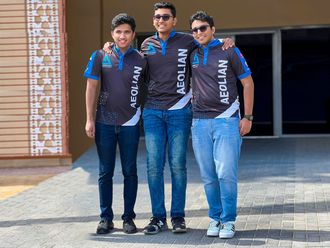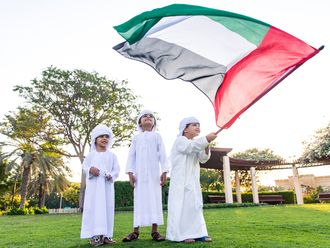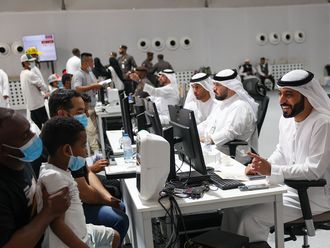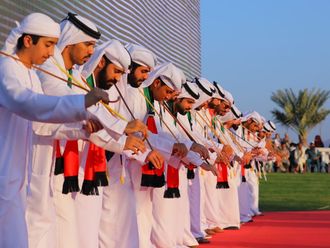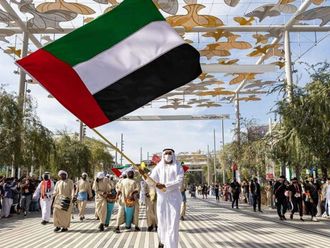_resources1_16a30b3db6c_medium.jpg)
Dubai: After a gap of one academic year, private schools in Dubai will again be allowed to increase tuition fees in the coming academic year, it was announced on Monday.
The approval came from Shaikh Hamdan Bin Mohammad Bin Rashid Al Maktoum, Crown Prince of Dubai and Chairman of Dubai Executive Council, during a meeting of the council on Monday.
However, schools whose quality rating has slipped from the last government inspection cycle will not be allowed to raise fees, according to the approved framework, put forward by Dubai’s Knowledge and Human Development Authority (KHDA).
New framework
Eligible schools will be allowed to raise fees anywhere from 2.07 per cent to 4.14 per cent, depending on how their ratings improved from the last inspection cycle of KHDA’s Dubai School Inspection Bureau (DSIB).
Schools that maintained their rating will be allowed to increase their fees by the same value of the Education Cost Index (ECI), which has been set at 2.07 per cent by Dubai Statistics Centre.
Schools whose ratings improved from very weak to weak, or weak to acceptable, or acceptable to good, will be allowed to increase fees by twice the ECI, that is, by 4.14 per cent.
Schools whose ratings improved from good to very good will be allowed an increase 1.75 times the ECI — 3.6225 per cent.
Schools whose ratings improved from very good to outstanding will be allowed an increase 1.5 times the ECI — 3.105 per cent.
The new framework allows schools in the lower rating categories the most increases, which is opposite to the previous frameworks. Earlier, schools in the higher categories were allowed the most increases.
Expected impact
How much a particular school is eligible to increase fees next academic year depends on its latest rating, which is expected to be announced soon by KHDA.
According to KHDA, the new framework means the average fee hike will be lower next school year by 35 per cent, compared to the previous framework. Previously, the ECI was set at 2.4 per cent (0.33 per cent higher), meaning schools were eligible for a fee increase between 2.4 per cent and 4.8 per cent.
Dr Abdullah Al Karam, director-general of KHDA, said: “The fees framework takes into account the cost of living and financial expectations of families in Dubai. These measures will ensure almost 90 per cent of all students enrolled in Dubai’s private schools will no longer face fee increases above the set ECI [2.07 per cent].”
Dr Abdullah added: “We have consulted parents, schools, and the wider community in our effort to balance the expectations of all stakeholders and develop a comprehensive framework that recognises schools making an effort to improve their education offering.”
Offsetting costs
The new framework will allow schools to counter “rising operational costs”, especially after an academic year of frozen fees, said Amol Vaidya, director of operations for Global Indian International Schools (GIIS) — UAE.
“Many schools, including us, had to give salary hikes to teachers, which we did last year and this year too, because the cost of living is going up, even though rents are down. Also, many regulatory requirements, like benchmarking tests and training costs, have a cost element too. And I know for some schools, their student enrolment fell or is flat. So the balance-sheets of many schools are under pressure, and this new framework on fee increase will help offset some of those accumulated pressures,” said Vaidya.
GIIS Dubai will not be raising fees next academic year as it is yet to undergo its first DSIB inspection, he added.
Deepika Thapar Singh, CEO — Principal, Credence High School, Dubai, said: “We welcome the new fee framework and it will further motivate educationists across all curriculums to improve the quality of education. It is reassuring and heartening to see that the Government of Dubai is always keeping the interest of the parent community in mind and taking positive steps to ensure parents pay according to the quality of education that their children receive.”
Reducing fees
However, despite the new framework, some schools plan to continue their decision to freeze or even reduce fees in the coming academic year.
Clive Pierrepont, director of communications at Taaleem, one of UAE’s biggest private school groups, said: “We welcome this early clarification of the fee structure for schools for next year. Ahead of this announcement, we have already declared that we are freezing our fees again for the majority of our schools in the 2019-2020 academic year. We are a group of premium quality schools all rated ‘Outstanding’ to ‘Good’, we don’t have mid or low-tier prices. So, for us, it’s all about improving quality and sensitive pricing. We have actually held our fees for two years now as we are acutely aware of the pressures on parents with the regular increases in their cost of living.”
He added: “It is admirable that the new fee structure is incentivising ‘Weak’ and ‘Acceptable’ schools to improve. However, it remains to be seen whether the increases allowed in these, traditionally ‘Low Fee Schools’ will be able to have the desired impact. Four per cent of Dh13,000 is still a great deal less than two per cent of Dh60,000; therefore the challenges of attracting high quality staff to turn these schools around will still remain. We think that much could be done to promote formal partnerships where higher ranking schools could be incentivised to help those performing less well.”
Education in Dubai
Ontario International Canadian School in Dubai also plans to reduce fees next academic year to help parents financially. The school had reduced fees last academic year and this academic year.
School principal Ron Hodkinson said: “We’re committed to not raising our fees. We feel that education is expensive in Dubai. We’re charging a fair price for a quality education. With everything else families have to endure, we want our resources to remain attractive to our community. Parents are very happy with our decision.”
Growing problem
Naveed Iqbal, principal of International School of Creative Sciences in Nad Al Sheba, said: “I fully support the framework and I agree it will help improve performance. As I parent myself, I know we want the best school for our children. Sometimes that means going into debt. There is, generally, a problem of growing fees and this framework regulates how much more schools can charge; what is their value for money.”
He added ISCS Schools will continue offering Founders Discount on fees for students enrolling in the next academic year. Those enrolling in 19-20 will have this discount for life.
“Even as a mid-market school, it’s important that we accommodate our parents’ aspirations so they continue to send their children to our schools. We are able to balance our schools’ needs and our parents’ needs.”
How much will school fees rise?
■ Schools whose ratings improved from very weak to weak, or weak to acceptable, or acceptable to good — 4.14 per cent.
■ Schools whose ratings improved from good to very good — 3.6225 per cent.
■ Schools whose ratings improved from very good to outstanding — 3.105 per cent.
■ Schools that maintained their rating — 2.07 per cent
■ Schools whose ratings dropped — 0.0 per cent



